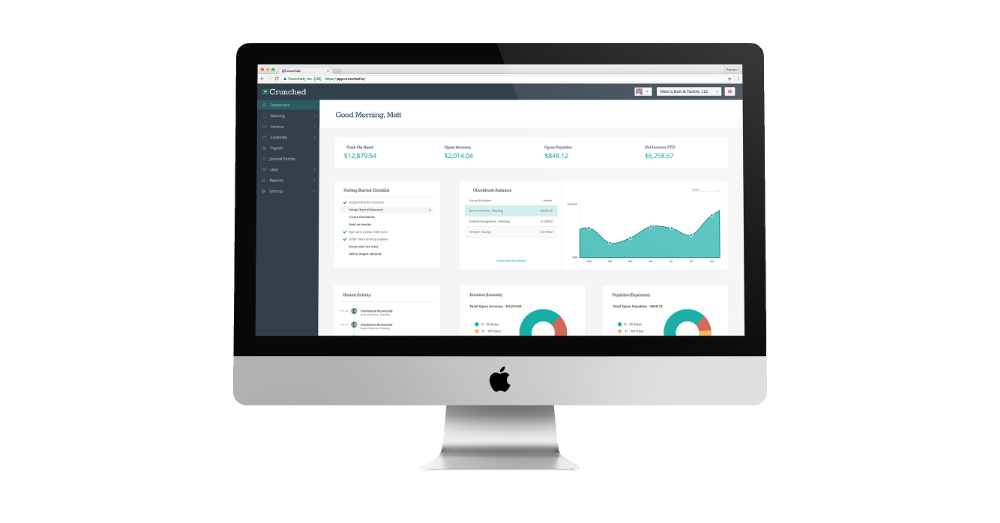The Importance Of Opening A Business Checking Account
By Matt Reims
When it comes to managing the accounting functions of your small business, there are a variety of essential steps you can take to ensure a smooth operation. Opening a business checking account is one of them. One of the main reasons to have a business checking account is to keep your business finances separate from your personal finances. There are other benefits too. Here are a few:
Simple, More Organized Accounting
Keeping your business checking account separate from your personal checking is essential to having a clear picture of your cash balances. Doing so will also help make reconciliation and other essential accounting practices, like cash flow analysis, much easier to manage.
Let’s look at the reconciliation process, for example. The main goal of reconciling your accounts is to establish how much money you have in the checking account you use for business. If your business and personal checking are mixed, it will be very difficult and time-consuming to get a clear picture of where you stand financially.
Your cloud accounting software is designed to automatically reconcile your accounts. This will not be possible, however, if your accounts are mixed.
Avoid Legal Liability Issues
It’s always a good idea to set up a business as a separate entity, such as a corporation or limited liability company (LLC). One of the main reasons for doing so is to legally separate your personal assets from your business assets. When you establish an LLC or corporation, you’ll have that protection. If your business and checking accounts are mixed, however, it will leave you open to personal liability. In a liability issue, the courts could determine that you are not running a separate business if your funds are comingled. To protect your personal assets, always set up a separate business checking account, and use it exclusively for business.
Make Tax Time Much Easier
When it comes time to do your taxes, during and at the end of the year, you’ll need to provide your accountant with a clear picture of your revenue and expenses. Your accounting software can help make this process easy, but not if your business and personal checking accounts are comingled.
There’s another major issue associated with mixing accounts: an IRS audit. If your business is audited, you’ll need to provide a clear picture of funds going in and out of the business. Your cloud accounting software will maintain all this information in an easy-to-access fashion. If your checking accounts are mixed, however, you won’t be able to do this, and an already unpleasant experience will become even more difficult to manage.
Professional Appearances
If your accounts receivable and payable are connected to a personal checking account, you’ll need to use personal checks when paying invoices. You’ll also need to accept payment in your name instead of the name of your business. This makes your business look small and unprofessional. Step up your professionalism by having a separate business checking account. This way, even if you’re a small and/or new operation, you can appear established.
Bank Relationships
Small businesses often need cash flow assistance to help cover the cost of inventory and/or expenses as they grow. If you have a relationship established with your bank, it might be easier to get a loan down the line. Opening a business checking account can be a first step toward establishing that relationship.
In addition to financing, having a relationship with your banker can open up a world of references and connections that could be important to your daily small business operations. Bankers may be able to recommend a reputable accountant, bookkeeper, etc. And bankers can offer financial consultation.
Overspending
If you have your personal and business funds being deposited into one account, there’s a good chance you’ll overspend when writing checks for your business. Your account balance will never show an accurate figure in relation to your available business funds. As a result, you may think that you have more than you do and spend too much. This can throw your finances way out of line and lead to serious issues.
Running a small business can be hard. Sometimes it takes an extra step or two to help make it easier to manage. When you open a separate business checking account, you’ll not only make managing the books easier, but also all your accounting processes will be more accurate and safe from potential issues down the line.


